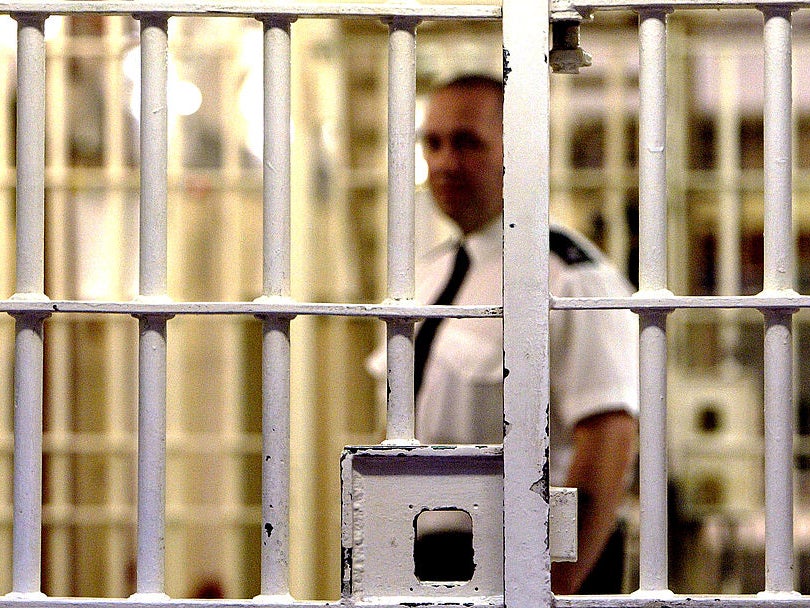Prisoner access to in-cell phones expanded by £10m scheme to cut reoffending
Officials say demand for illicit mobile phones is driving organised crime and violence

A £10m scheme to give more prisoners access to in-cell phones has been unveiled by the government as part of efforts to cut reoffending.
Officials said the “restricted” landlines would also reduce tension amid record levels of self-harm and attacks in prisons across England and Wales.
It is hoped this access will cut demand for illicit mobile phones smuggled into jails, which are linked to violence and organised crime.
The Ministry of Justice (MoJ) cited research suggesting maintaining family ties from jail can cut reoffending by 40 per cent.
“At this time of year more than any other we’re reminded of the importance of family, and there can be few groups that this applies to more than prisoners,” said justice secretary David Gauke. “In-cell telephones provide a crucial means of allowing prisoners to build and maintain family relationships, something we know is fundamental to their rehabilitation.
“Introducing them to more prisons is a recognition of the contribution I believe in-cell telephones make to turning prisons into places of decency where offenders have a real chance to transform their lives.”
The MoJ said reoffending “currently costs society £15bn every year” and that queueing for communal phones was causing tensions on the inside.
All calls on in-cell phones are recorded and can only be made to a small number of pre-approved numbers, while access can be removed if misused.
In-cell phones are currently installed in 20 prisons in England and Wales to allow inmates to make private calls at times that suit their loved ones, rather than according to a pre-arranged schedule.
The MoJ said they can be used to access to support services such as the Samaritans and Mind, reducing their risk of self-harm.
The latest roll-out has been funded by the additional £30m allocated to prisons in the last budget and will allow 50 prisons to have the phones by March 2020.
A review published last year by Lord Farmer called family relationships the “golden thread” to reduce reoffending in a fractured probation system.
“Relationships are fundamentally important if people are to change,” he concluded.
Peter Dawson, director of the Prison Reform Trust, said the funding was “very welcome news” for inmates’ families.
“Access to legitimate in-cell phones can reduce tension and self-harm,” he added. “It also undermines the market for illegal mobile phones in prison, and all the violence associated with it.
“This is a big step in the right direction. We look forward to the rest of the prison estate following suit.”
Figures released in October showed that self-harm and violent attacks in prisons have reached a record high, with incidents soaring by 20 per cent in a year.
Incidents of self-harm in jails across England and Wales increased to 49,565 in the year to June 2018, with the number of individuals up by 10 per cent, despite a reduction in the overall prison population.
There was an assault on either prisoners or staff every 20 minutes on average and suicides increased by 12 per cent, from 78 to 87.
At the time, Mr Gauke said he was “absolutely determined to bring down the unacceptable levels of violence in our prisons”.
Subscribe to Independent Premium to bookmark this article
Want to bookmark your favourite articles and stories to read or reference later? Start your Independent Premium subscription today.

Join our commenting forum
Join thought-provoking conversations, follow other Independent readers and see their replies